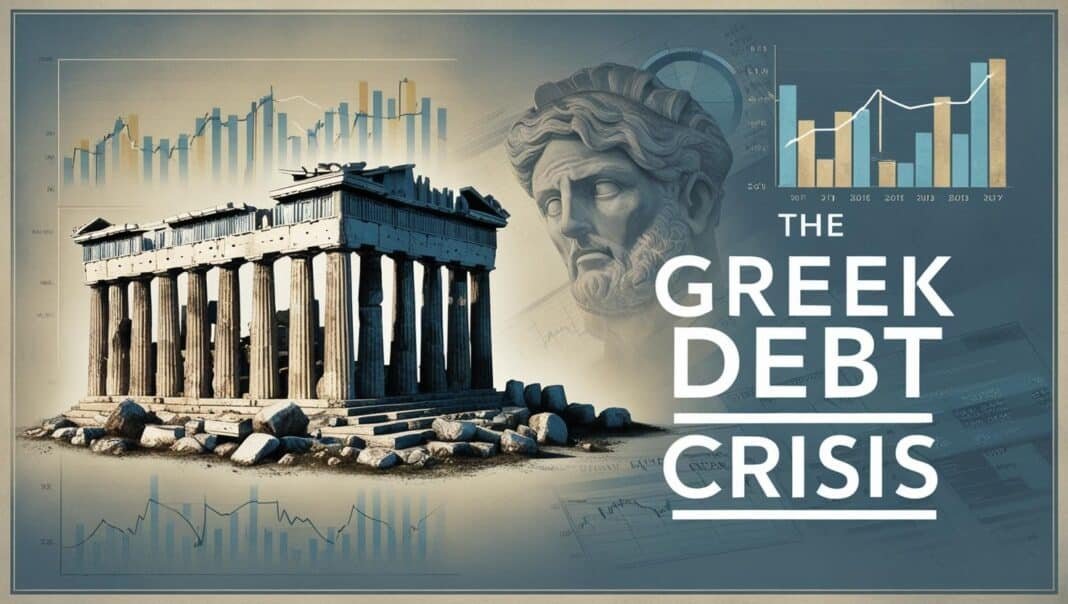Greek Debt Crisis : Greek Politics and the Mitsotakis Government, A Period of Transition and Reform
The Political Landscape that Paved Mitsotakis’s Way
2020 brought a seismic political change to Greece where anger over the Prespa Agreement (name change agreement) against North Macedonia helped bring the prime minister Alexis Tsipras, from the governing Syriza party to political downfall. After a heavy defeat in the May European Parliament elections, Syriza also lost the Greek parliamentary elections in early July 2019. Syriza, with just 31.5 percent of the vote, couldn’t compete with the center-right New Democracy (ND) party, which nearly cleared 40 percent. The results gave ND an outright majority in parliament with 158 seats and led to Kyriakos Mitsotakis becoming prime minister.
Mitsotakis, the son of ex-Prime Minister Konstantinos Mitsotakis, has led ND since 2016. He had steered the party toward the center and ran on rebuilding the economy. Back then Greece hadn’t fully recovered from the shadow of the debt crisis as the International Monetary Fund (IMF) had also presented a slow GDP growth rate of just 2.1 percent in 2018. His pledges of tax reductions, the privatization of public goods and a reworking of Greece’s debt conditions appealed to a majority of voters and secured ND’s hegemony.
Early Reforms and Greece’s First Female President
In one of his early bold decisions as prime minister, Mitsotakis named Katerina Sakellaropoulou, a high court judge and an expert in environmental and constitutional law, to be Greece’s president. She had broad approval with 261 out of 300 members of parliament voting for her on January 22, 2020. She has since made history as Greece’s first female president.
Coping in the COVID-19 Era
Soon after Mitsotakis came to power, Greece, like the world at large, was hit by the COVID-19 pandemic. With Greece’s health system battered by austerity cuts, the government moved fast to prevent being overwhelmed. Quick implementation of the lockdown and severe travel restrictions meant Greece was not hit as harshly as many other European Union (EU) member states during the first wave. But as new waves of the virus appeared late in 2021 and 2022, the government’s reaction was slower, resulting in more widespread outbreaks and a higher toll.
And for all the pandemic’s economic toll, Greece bounced back robustly in subsequent years. The return of tourism and financial support from the EU significantly contributed to the country’s economic recovery. Greece’s G.D.P., the I.M.F. says, expanded by more than 8 percent in 2021, and almost 6 percent in 2022. Mitsotakis attributed the growth to his pro-business policies such as tax cuts and investment incentives. This turnaround economically was also reflected in Greece’s decreasing debt-to-GDP ratio, which decreased from 212 percent in 2020 to 166 percent in 2023.
The Hurdles and the 2023 Vote
As Mitsotakis geared up for the 2023 parliamentary elections, his government had several problems to address. A deadly train crash in February 2023 that killed over 50 people caused national dismay and focused attention on Greece’s ageing infrastructure.
Moreover, a media frenzy over orders by the Greek secret service to wiretap opposition leader Nikos Androulakis’ phone, in addition to around 30 other citizens, generated serious concerns over the threats against democratic institutions and the rule of law. Growing costs of living, compounded by the impact on the global economy of the Russia-Ukraine war, added to the frustration felt by citizens.
The Election Result and Continued Domination of ND
In spite of these obstacles, ND continued to dominate Greek politics. In the May 2023 elections ND won more than 40 per cent of the vote, Syriza 20 per cent, and PASOK just under 12 per cent. Though it won 146 seats, this was not a majority in its own right. Refusing to enter a coalition government, Mitsotakis turned the government over to a caretaker and called for repeat elections in June.
This time, up to 50 additional parliamentary seats were awarded to the leading party due to a rule change. ND’s dominance was confirmed in the elections of June 25, where the party once more took more than 40 percent of the vote, securing 158 seats — a majority in its own right. Syriza and PASOK followed with around 18 percent and 11 percent, respectively. And, three far-right parties — Niki, Greek Solution, and the Spartans — gained more than 30 seats in total, making a significant dent on the Greek political landscape.
Coming Up: Mitsotakis’s Second Term and Turbulence on the Horizon
Into his second term, Mitsotakis’ government had to tackle the twin challenge of maintaining economic progress and confronting urgent domestic issues such as infrastructure works, and improving confidence in the institutions of government. His sustained commitment to economic liberalisation, foreign direct investment and technology will also exert a huge bearing on the course that Greece takes over the years ahead.
If ND’s election victory demonstrates broad support for Mitsotakis’s economic policies, rising concerns over governance, transparency, and social justice indicate there are thorny issues around the corner. As Greece looks to the future, the legacy of dismantling this state will be the test of the effectiveness of Mitsotakis’s leadership: whether ND can continue to expand its political partnership or the establishment’s opposition will take advantage of the gap in power in the next elections.
Conclusion For Greek Debt Crisis
Kyriakos Mitsotakis’s rise and continued dominance in Greek politics marks a period of significant transformation. From economic revitalization and modernization of governance to crises like the pandemic and democratic challenges, his tenure reflects a complex mix of reform, controversy, and resilience. As he moves into his second term, Mitsotakis faces the task of maintaining economic momentum while repairing cracks in public trust and institutional integrity. The outcome will likely define not just his leadership, but Greece’s democratic and economic trajectory in the years to come.
FAQs
- Who is Kyriakos Mitsotakis?
- He is the current Prime Minister of Greece and leader of the New Democracy party since 2016.
- What was the Prespa Agreement?
- An agreement that changed the name of Macedonia to North Macedonia, sparking political controversy in Greece.
- How did Mitsotakis respond to COVID-19?
- His government implemented early lockdowns and restrictions, which helped contain the virus during the first wave.
- What were the main issues in the 2023 election?
- Infrastructure problems, rising living costs, and concerns over government surveillance and democracy.
- What are Mitsotakis’s key policies?
- Tax cuts, privatization, investment incentives, and a pro-business agenda focused on economic growth.
Reference Article






